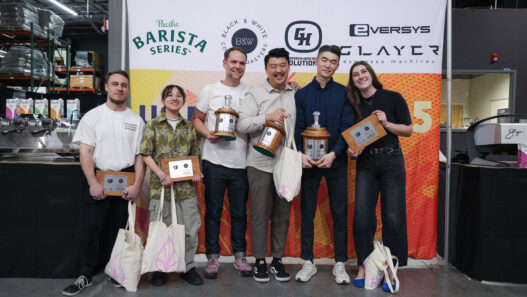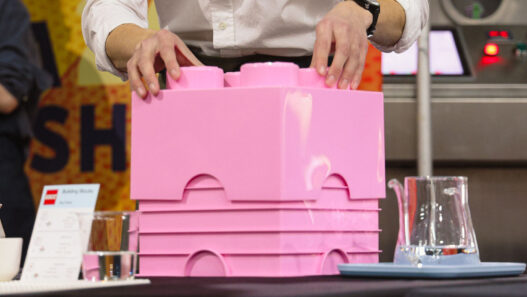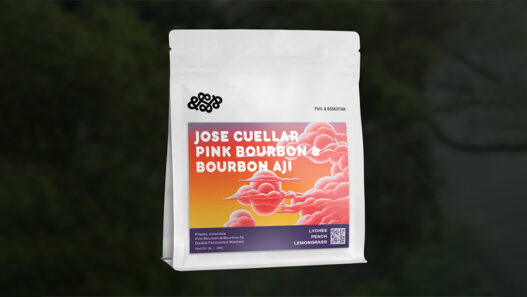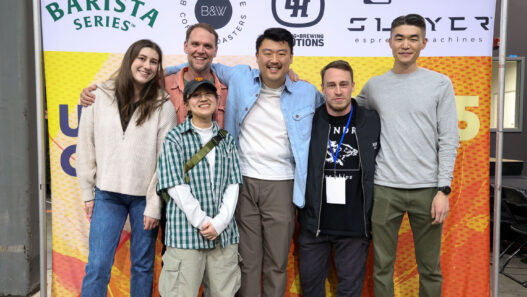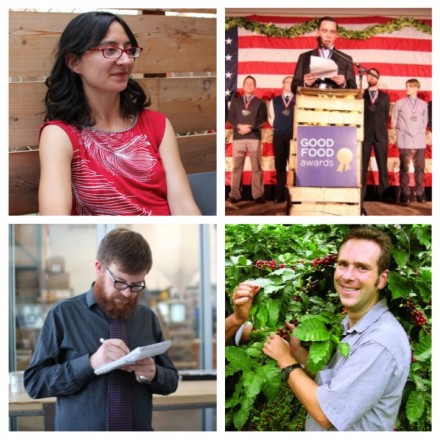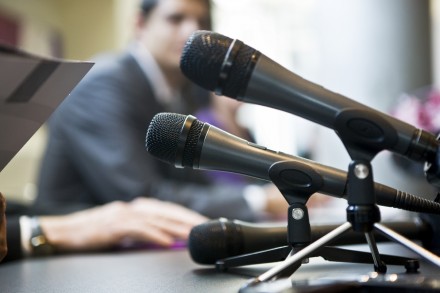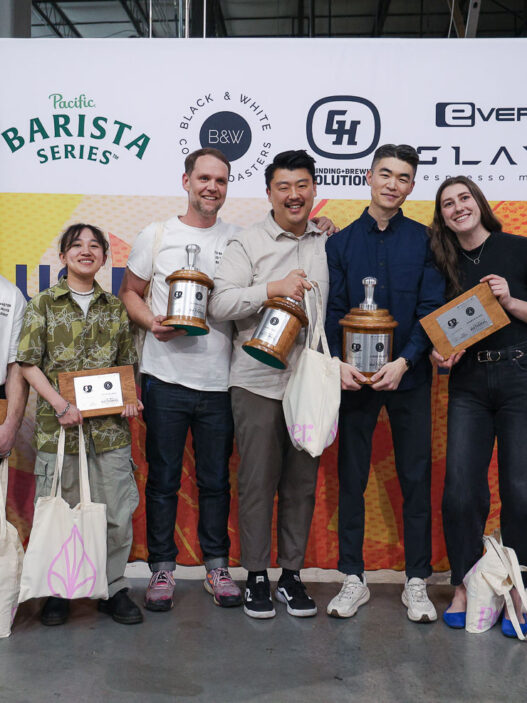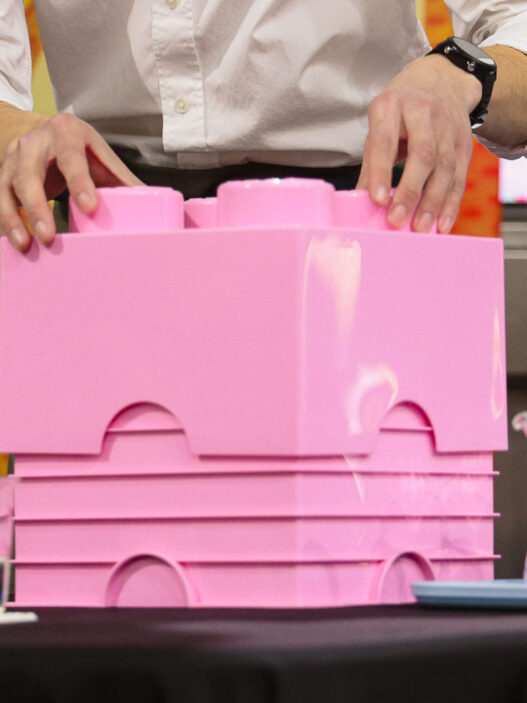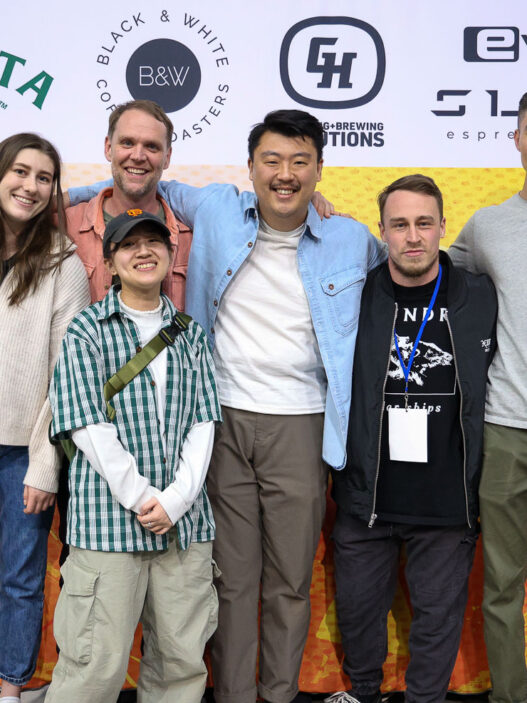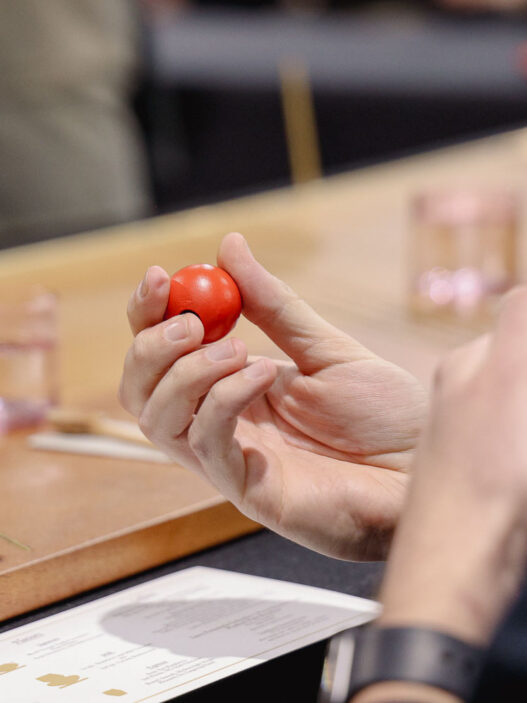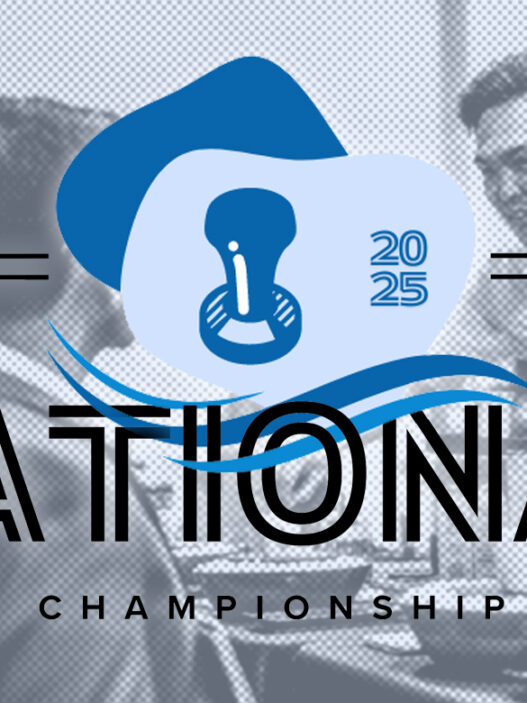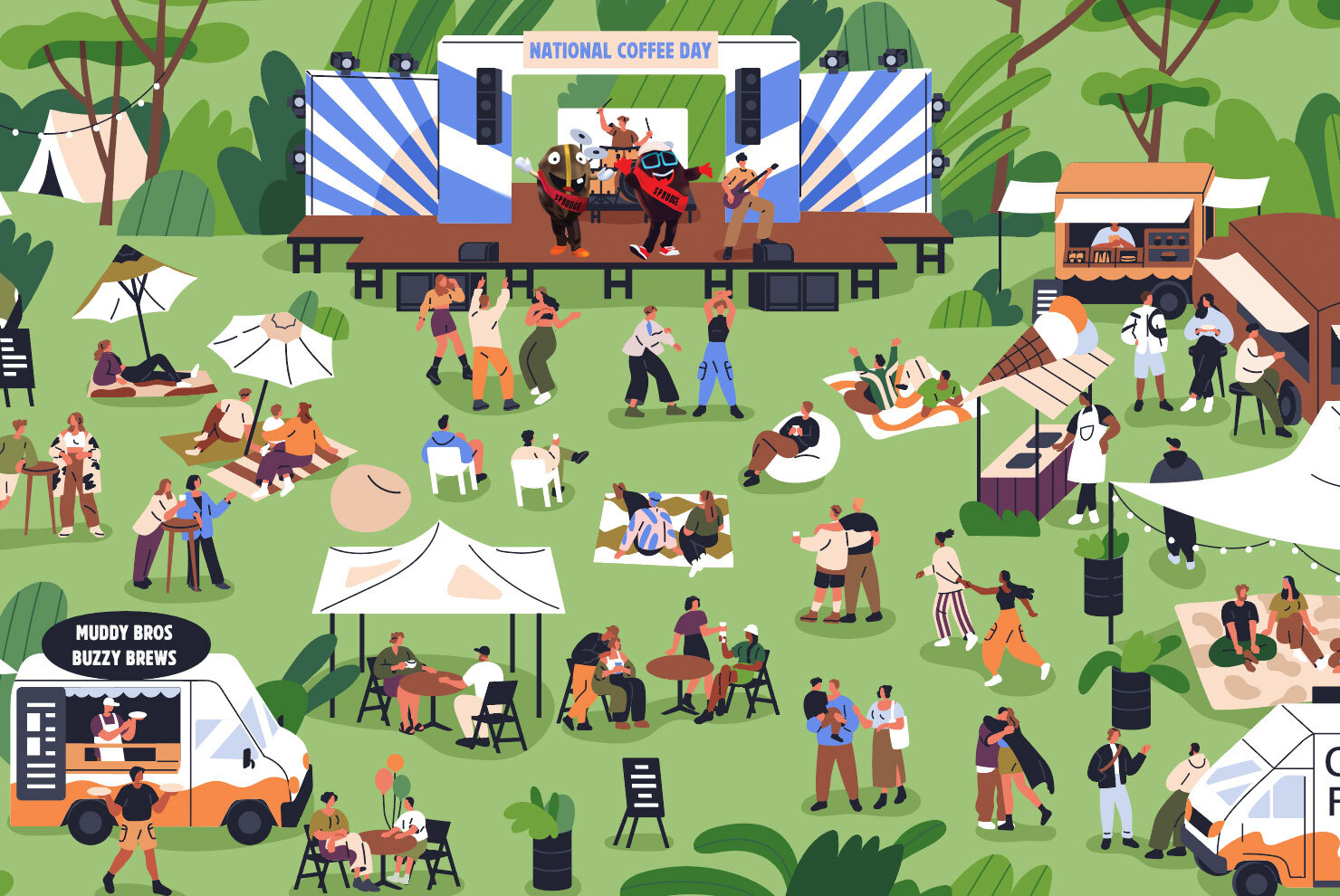On January 21, a panel discussion on sustainability issues in coffee was attended by over 100 people at San Francisco’s Ferry Building. Panelists included Chris Bacon, an environmental social scientist at Santa Clara University and co-author of Confronting the Coffee Crisis; Steven Vick, quality control manager at Blue Bottle Coffee Co. and a 2009 Sprudgie Award winner; and Colby Barr, co-owner of Verve Coffee Roasters, winner of two Good Food Awards in 2013 and the Sprudgie for “Notable Roaster” in 2011.
The panel was moderated by Hanna Neuschwander, author of Left Coast Roast, who also contributes this original reporting to Sprudge. The event was sponsored by CUESA.
I first started drinking coffee as a fresh-faced high school graduate in 1999. If anyone I knew talked about coffee at all (and very few did), sustainability was what they talked about. Our sense of what Fair Trade and organic meant was vague, but we felt it was at least something to consider.
How different from today. I just returned from a coffee-drinking trip to LA, where I witnessed more than one enthralling, spiraling confab about varietals, brew methods, and ingredients. Noticing how far the conversation about coffee has migrated to aesthetic issues and a focus on quality.
That interests me. For a number of reasons, coffee is held do a different standard than other agricultural crops. Despite the fact that pretty much everything we consume involves the labor of the poor, and that the success of all agriculture is contingent upon the continued viability of ecological systems, on the whole people want their coffee to be “sustainable.” That was the motivation behind convening a panel of both experts on quality and sustainability and giving them a public forum in which to hash it out. Fittingly, the panel was framed as a sort of follow-up to the Good Food Awards, which celebrates the intersection of sustainability and quality—and has reminded us more than once that the confluence of these waters can make for tippy canoes.
Perhaps the most moving and enduring definition of sustainability I’ve come across is the admonition to “meet the needs of the present, without compromising the needs of the future.” It’s good because it makes clear how broad both problems and solutions are. Sustainability is not limited to watershed management or carbon emissions—it encompasses human needs and folly.
The discussion was exciting because it brought together the informal, experiential expertise of coffee professionals (Colby Barr and Stephen Vick) and the formal, scholarly expertise of an academic who studies these issues (Chris Bacon). This conversation took place in public, not only in room full of industry folks; like all vexing conversations, it raised more questions than it answered.
What follows is a heavily edited selection of the conversation.
Do certifications really deliver on their promises?
Chris Bacon: I think we’re getting to the point where there’s a breakdown in trust. I think we should be honest that we don’t exactly know the answer. Certification itself is not a guarantor of sustainability; it sets up criteria which should move us closer to sustainability. If you look at the data, there is still quite a long way to go.
We need to be allowed to have more honest conversation about the trade offs. On the whole, I would say a certified coffee is probably better than a non-certified coffee. The Smithsonian Institute’s Smithsonian Migratory Bird Center “shade grown” certification, on paper and mostly in practice, has the highest standards for diversity of shade on coffee farms. Unfortunately they charge roasters a very high fee. I think organic has a lot of integrity. Fair trade of some kind is better than not.
What’s happening with “fair trade” and why is it important?
Chris Bacon: There is a sort of row going on about what the meaning of “fair trade” will be. This has consequences for the impact on the ground in farmer associations. But fair trade has incredible potential in terms of promoting smallholder empowerment, and there are important democracy questions associated with this. Coffee holds dramatic power inequalities. I mean, how many times has an Ethiopian coffee farmer showed up at your doorstep, here? Why I celebrate fair trade is it’s one of the few certifications to raise the issue of justice in the food system.
What are some of the complexities in viewing “direct trade” through a sustainability lens?
Cobly Barr: For one, it’s a loose term and everyone is generating their own definition. And if you don’t have a sticker on the bag, many people maybe don’t think it’s fair. Okay, well, right now the Fair Trade floor price is at $1.56 and the cost of production is like $1.60/$1.80. For direct trade, people have to develop a trust in the company and their brand, and what they stand for—you either believe them or don’t.
I believe in the supply chain totally. The supply chain can’t go away, it has to exist. Importers and exporters aren’t middlemen bad guys. They are an important tool that provides important logistics and financing to help expedite coffee. But the most important people in this whole link are the two bookends: the people at farm level, the people at street level. Not the barista, not the roaster. The farmer and the consumer are the most important and they’re the most disconnected, geographically and emotionally. The first person that puts down the $3 or $4 for the cup of coffee—that factor right there determines everything.
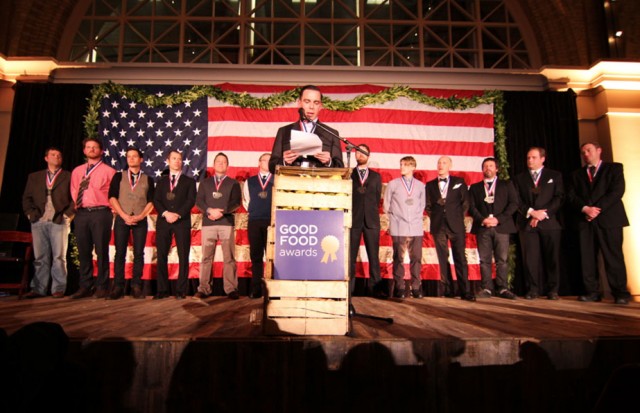
So, why focus on quality?
Colby Barr: Good food is good business. Quality makes sense because cash is king. My parents are farmers. If you ask my dad or go to Guatemala and ask a farmer, “What could I do to really help you more?” I guarantee every farmer is going to say, “Pay me more.” Every farmer on planet Earth will say, “Pay me more.” And they’re not trying to be greedy. It’s the plight of the farmer—you may break even.
But you can have social impact and be sustainable and use quality as the lever. We think that with quality first, we can generate higher prices and build relationships and use that to increase qaulity standards, with environmental and social impacts. We have a say in what farmers are doing because we’re paying premiums and they are more likely to listen.
It’s hard to find the right answer. I had a professor in college tell me once, “You know, man—just commit to something.” We’re all searching for how to do what we feel is right. We’re trying to get focused and have a point of view.
How does the issue of quality look from a sustainability perspective?
Chris Bacon: We have the potential now of linking quality and sustainability, linking these flavors in the cup to the terroir of the land and they way it’s being farmed. But we can’t leave out basic facts like that many smallholders live through periods of seasonal hunger.
What happens when farmers don’t understand the quality they have?
Stephen Vick: There’s always going to be some bad coffee in any harvest. A big part of it for all of us to calibrate with the farmers and say, this is what we’re looking for, this is how we roast coffee, and this is what we’re going to pay more money for. Recently, I tasted an amazing coffee in Rwanda, scored a 93. And when I wanted to find out where that coffee was, I found out it had been consolidated in a container that was going to end up at Costco. And that was predominantly because the suppliers of Costco’s coffee forward contract 30 containers of coffee; they have to fill them. They were letting amazing coffees get bulked. That happens every day, everywhere, because people don’t understand. So a big part of it is trying to explain that quality.
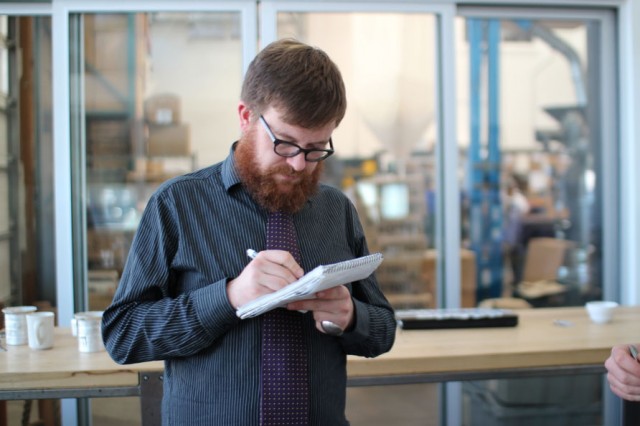
If quality is a reasonable lever, and quality is determined on our side of the supply chain, how do you ensure that farmers understand that quality and have the power to negotiate fair prices?
Colby Barr: We don’t want this to be a one-way street. But it’s a challenge because most farmers we work with do not drink their own coffee. You’ll see the crazy, green, weird, rotten, twigged-out coffee in the corner and they’re like, “Oh, no no no, don’t worry, that’s just for local consumption.” They export the good stuff, drink the bad stuff. So to get them to develop a palate, it’s really a missing link. Again, it’s bookends of this supply chain that you want to bring around to a full circle.
Chris Bacon: True, some of these conversations have happened in some places, but they haven’t happened with enough people. Not enough farmers are cupping coffee with people that love and know coffee and can share that enthusiasm with them. [But it’s possible] to change the culture of local coffee consumption habits by being exposed to the qualities in the cup. That can happen. And that story is changing and playing out in different ways in different places through different initiatives.
As a consumer, how do I know where a quality premium is going, how it’s being delivered and whether it’s worth it?
Colby Barr: We talk about this all the time. How do we convey this information to people and not bury them in the first sentence? We aren’t doing a good job as a company necessarily or as a “wave”. Our approach is to say hospitality and quality will equal loyalty and trust. Once we have that, we can have a conversation. People come in the first time, they just want a cup of coffee. We don’t want to bury people with information—“This farmer did that, and here’s an FOB contract, and we paid $3 for coffee.” Then you’re like, “Well, you’re charging me $18. How does that even work?” I think they click with a brand first by the taste, by the feel of a place, what’s in the cup.
But profits are sustainability. To have environmental sustainability and social sustainability, you have to be profitable. There’s no way around it.
“Big” is sort of a dirty word in both coffee and sustainability circles. But what are the benefits of size when it comes to sustainability?
Stephen Vick: Impact is what growth can do. There’s a gentleman who works for Green Mountain, Rick Peyser, and his full time job is measuring how balanced the diets are of the folks in the coops they are working with. They found that families were able to eat better during the harvest, because they had more money coming in, so they always had more protein. And then when the harvest and export season runs out, their diets are less balanced and more unhealthy. Green Mountain can [expend great effort on these studies] because they are so large.
They can also do things like have forward contracts. When you have a contract in your hand as a farmer, you can use that contract as collateral to get a loan for working capital, and then do the things we’re asking. We say, “We want this quality, you need to do this, separate lots like this.” It costs money to do that. The money to operate comes from forward contracts. [To do this] you generally need to be able to buy a container.
Why are forward contracts useful or important for farmers?
Stephen Vick: In Rwanda this year, I bought through a supplier that really understands the market and they have bankers that work for them that hedge on behalf of all of their farmers. If you didn’t hedge this year, you lost money. Why? During the harvest, the C market price was high. It’s the cherry price, the price cooperatives or the private mills are paying farmers for their cherry. A little later, it’s export season, when the processed coffee is ready to be shipped, and suddenly lots of people are buying coffee, paying lower prices. These are bigger buyers who are market driven [i.e., not paying quality differentials]. They are paying lower prices to the mills and coops than the mills and cooperatives paid for cherry. So, if you didn’t hedge during the harvest, you’re gonna sell your coffee for less than what you had to pay the farmer for the cherry. Then the coop as a whole is going to be in debt. That means they go into the next year with debt, and they don’t have money to pay for cherry the next year. Forward contracting, because it guarantees a price in advance, can really help balance the market out.
So, what’s missing from the conversation?
Stephen Vick: I think what’s missing from the direct trade piece is tangibility. Not just “we paid this high price.” Two thousand dollars would pay for organic compost for all of the farmers in a coop in Rwanda. A company like Verve could easily afford that and be able to say, “When you’re buying this coffee, you’re paying for the organic compost these farmers used.” Fifteen thousand dollars will build a washing station in Uganda. That’s what’s missing from the direct trade model—where the money directly connects to an actual thing, whether it’s improving quality or improving social livelihoods. Later this year, you’ll be able to walk into Walmart, buy a bag of Rwandan coffee, scan a QR code and get all of the sustainability information and the story of where that coffee came from. It doesn’t have a third party certification, but the company doing this is vertically integrated [they own all parts of the supply chain].
Chris Bacon: That is powerful and that is transparent. But that brings me back to the way we started, which is the democracy question as well. Is it democratic?
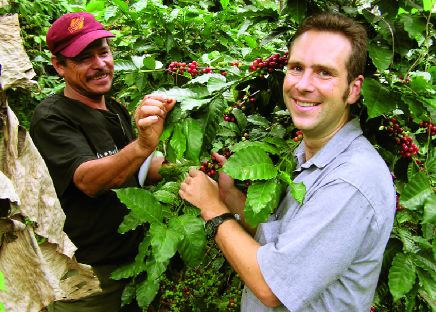
Ideas for a way forward?
Chris Bacon: We need to rethink some of our economic models. Maybe there are shared ownership possibilities for different actors in the supply chain. One thing I think direct trade roasters can do is partner with grassroots organizations to innovate. You are close enough that you know the two ends of the value chain. This is an advantage of the scale at which you’re operating—you don’t have 500 people on your staffs. You can build these partnerships for better equality, or better education, sustainability. Work with some of the grassroots organizations out there that are helping balance out the democracy question—especially when you’re not there. I think that’s a real opportunity. I liked when you said that that’s what the direct model is missing—some kind of model around impact. Maybe it’s a little bit different than some of the larger companies. Right?
Maybe it’s some of the grassroots, innovation, experimentation things. I imagine it’s part of what has worked for you guys [meaning Mr. Barr & Mr. Vick]—experimentation, playing around. That could carry over in different ways and different contexts. It could be kind of cool. Can we renew this partnership with citizens and consumers as active participants in the process?






